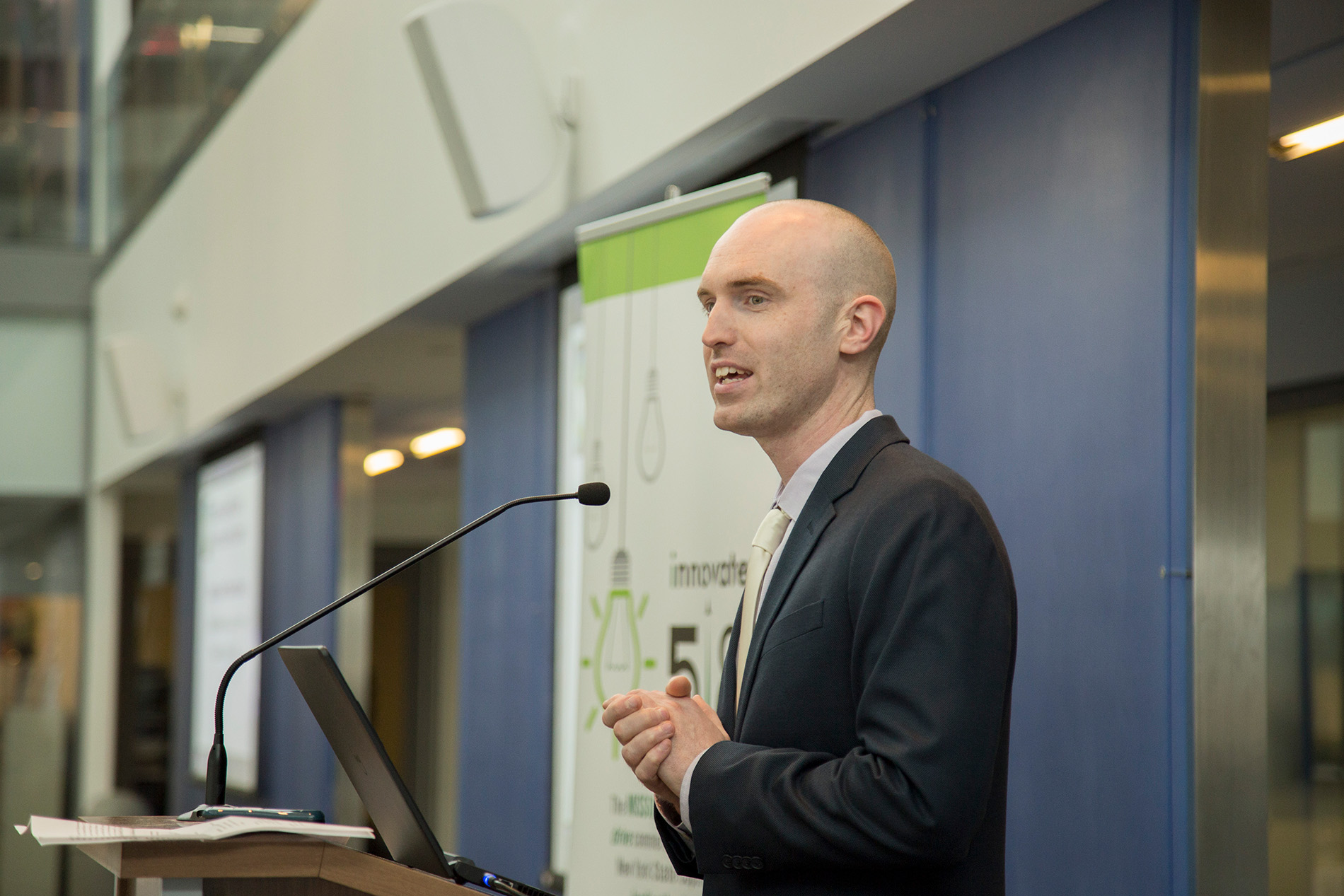Prolific Researchers
The events of the past year paused or slowed the growth of many activities. In contrast, School of Business faculty research thrived despite obstacles, including having children at home. The scope of their projects ranged widely from traditional business disciplines such as accounting, finance, marketing, management, supply chain and operations research to new fields of research such as machine learning, digital gaming and internet addiction.
In total, School of Business researchers tallied 40 unique publications in academic journals, 14 book chapters in scholarly collected works and two scholarly books.
Parent Researchers
Research was harder for parents with children working from home.
"Like so many parents, managing work (and research) during the pandemic presented a host of new challenges including shorter stretches of uninterrupted time to think deeply about a topic", said Management Chair Bill Wales, who continued that "with conferences and professional meetings all going virtual, informal interactions and networking were also largely put on hold which was perhaps a blessing as it led me to develop closer bonds with my current co-authors, colleagues, and friends over many phone (and Zoom!) calls. In a sense, these meetings felt more personal because they were taken at home and often included guest appearances of kids, dogs, spouses and neighbors.
As attention was divided, projects took longer but were also very rewarding in my experience."
Associate Professor of Information Technology and father Saggi Nevo agreed, "it was harder to concentrate since there were more destructions at home. Before COVID I worked several days per week from the office and during the pandemic this was no longer possible or more restricted. I guess I was less efficient."
A Sampling of the Best
Four top School of Business researchers share what they have been up to.
Bill Wales

Since 2020, I've published articles considering how an entrepreneurial orientation within health care settings might help reduce burnout among healthcare professionals, how firms maintain performance stability during crises, how firms can strategically orient themselves for growth during economic crises, and a number of articles exploring how organizations and individuals orient themselves towards entrepreneurial activity.
Currently, I have a number of research projects under way including work focused on understanding the internal and external drivers of organizational scaling. That is, what enables some firms to accelerate their growth trajectories faster than their peers? Why do some firms grow and scale more rapidly in terms of sales or job creation? In my future research I also plan to explore more deeply how firms signal their entrepreneurial intentions within communications to key stakeholders, such as CEOs letters to shareholders, to better understand and predict when firms are poised for remarkable growth.
Jungwon Kuem

My five publications have been centered on two distinct, yet related, streams of research, namely, online community and IT addiction.
I have three papers related to online community. The first paper, published in the Journal of Management Information Systems, attempted to better understand the online community members’ continuance. My coauthors and I found that prominence, which refers to the salience of community members’ psychological proximity to their community, influences continued behavior in the online community more critically and directly than engagement, which had been widely known as a key determinant of continuance. The second paper, published in the Journal of Association of Information Systems, examined online game players’ psychological and behavioral processes to reach goals in digital gaming. It showed that prior game points and goal desire have interaction effects on goal-directed effort and subsequent acquisition of game points. The third paper, published in the Decision Science Journal, was designed to reveal how distinct forms of active participation in crowdwork communities differently affect crowd workers’ earnings and continuance. We showed that discussing crowdwork skills with other colleagues in the community increases earnings; in contrast, socializing with others lowers earnings. And counterintuitively, we found that their contribution of knowledge to the community is negatively related to crowdwork continuance. Overall, these publications contribute to information systems literature by offering a better understanding of why and how online community members behave and interact with other community members in their community.
Meanwhile, I have two papers related to IT addition. The first paper in this research stream, published in the European Journal of Information Systems, developed a theory-drive model of technology addiction. It showed that heightened desire and mobile social interaction are superior contextualized measurements for smartphone addiction. Further, based on the newly developed model for smartphone addiction, we found that addiction and conflict (addiction’s negative consequences) differ in their effect on subsequent perceptions, such as perceived usefulness and perceived enjoyment. The second paper, published in Information Systems Frontier, attempted to present a holistic framework comparing Internet addiction with Internet habit in terms of their antecedent personality factors and their consequences. It demonstrated that sensation-seeking neuroticism and dysfunctional impulsivity influenced Internet addiction; in contrast, only neuroticism and dysfunctional impulsivity were significant in Internet habit. Overall, our findings from the two publications contribute to the body of knowledge by offering more rigorous measurements of IT addiction and showing the similarity, difference, and interaction between IT habit and IT addiction.I am currently focusing on a new and exciting research area of information security. My security research aims to understand the impacts of security policies and training programs on employees’ security behavior and outcomes. In particular, I have been trying to understand the underlying mechanisms of how security training programs, organizational factors, and individual characteristics independently and interactively influence employees’ security behavior and outcomes.
Lisa Baranik

Managers cannot always provide optimal work environments for their employees. My research focuses on identifying how employees can succeed at work in the face of barriers. The barriers I examine include some of the most difficult issues facing workers around the world including access to decent work and the mistreatment of vulnerable populations in workplace settings. For example, my in press study at Personnel Review finds that refugee men are approximately 8 times more likely to be employed than refugee women, even when the refugee women want and need jobs. The most commonly reported reasons that refugee women cannot work include childcare, housework, family objections and a lack of job opportunities.
The next steps are to conduct research that investigates interventions for helping vulnerable employees. For example, although my research shows that having connections is essential for career success, researchers know little about interventions that help vulnerable populations obtain connections. For example, how do refugees connect with key people who can help their careers and help them start businesses?
Saggi Nevo

Publishing in a top journal, Information Systems Research, is an honor and getting there involved surmounting challenge after challenge, which was very satisfactory. There is also a sense of vindication, in that I was able to prove that my initial hunch was correct.
I published papers that I started working on well before the pandemic and have not yet published papers that I started working on during the pandemic.
I am continuing to work on the link between technology and creativity. I focus on the use of IT during the idea elaboration phase.


